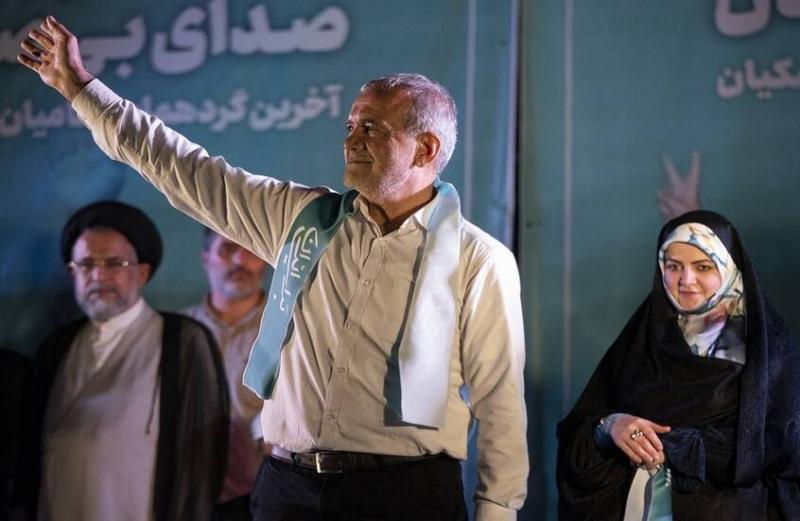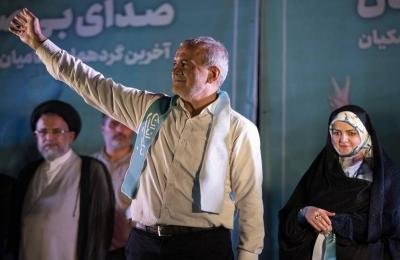Reformist Massoud Bezhakian, an advocate for greater openness towards the West, was elected as President of Iran in an election where he faced conservative candidate Saeed Jalili in a crucial round, succeeding Ebrahim Raisi who died in a helicopter crash last May. Bezhakian, a 69-year-old surgeon, garnered over 16 million votes (53.6 percent) out of 30 million, according to electoral authorities. He benefited from the support of the main reformist coalition in Iran and was endorsed by many Iranians who fear an absolute takeover by hardline conservatives, according to a report by Agence France-Presse.
### What Did Bezhakian Promise?
During his election campaign, Bezhakian called for "constructive relations" with Washington and European countries "to pull Iran out of isolation." He also pledged to revive the 2015 nuclear agreement with international powers, including the United States. Domestically, Bezhakian promised to lift internet restrictions and declared his "complete" opposition to the morality police responsible for enforcing women's mandatory hijab. He called for broader governmental representation for women and religious and ethnic minorities, especially Kurds and Baluchis. He promised to reduce inflation, currently around 40 percent.
In a television debate with Jalili, Bezhakian stated that Iran needs $200 billion in foreign investments, emphasizing that these funds can only be attracted by reactivating relations with the world.
### What Are the President's Powers in Iran?
The powers of the president in Iran are limited. The president is responsible for implementing the broad outlines of policies set by the Supreme Leader, Ali Khamenei, the highest authority in the republic. As president, Bezhakian will hold the second highest position in the republic and will have an influence on domestic and foreign policy. He will determine the country's financial policies by proposing the budget and appointing the central bank governor and the minister of economy. However, his powers concerning the Iranian police will be limited, and practically nonexistent regarding the army and the Revolutionary Guards.
### What Do People Expect?
Feelings among Iranians regarding Bezhakian's election victory vary; while some express happiness, others show reservation. Journalist and political analyst Maziar Khosravi noted that the elected president "did not promise immediate solutions to problems" in Iran. According to Khosravi, people voted for Bezhakian because they realized his approach is based on interacting with the world, which is "completely different from the current government's approach." Political analyst Masoud Masoudi Bor expressed hope that Bezhakian's supporters believe "he can bring about positive changes and solve some of the country's problems," especially economically.
### What Can He Achieve?
Experts assert that Bezhakian will face major challenges in a country where conservatives dominate most government institutions. The parliament, controlled by conservatives and hardliners, is one of these institutions, according to Masoudi Bor. Ali Waez, director of the Iran program at the International Crisis Group, emphasizes that Bezhakian will face a "difficult battle" to secure "social and cultural rights in his country and engage diplomatically with the outside world."
### External Attention
These elections were closely followed abroad, as Iran is at the heart of many geopolitical crises, from the war in Gaza to the nuclear issue that has been a source of conflict between Tehran and the West, particularly the United States, for several years. They also took place amidst popular dissatisfaction primarily due to deteriorating economic conditions resulting from renewed Western sanctions on Iran.




